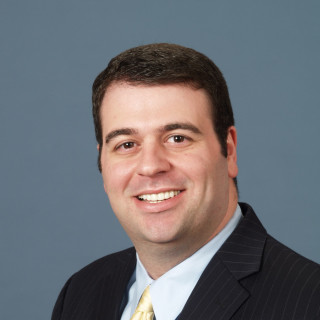
Few topics today seem to be as divisive amongst physicians as the argument over whether or not one should practice evidence-based medicine (EBM). The arguments against its deployment, however, seem to be largely based on misconceptions. I believe the steadfast application of EBM is really the only appropriate way to practice medicine.
Let’s take a look at some purported issues to see why.
Experience Complements Evidence
There can be no argument that EBM works. There is a vast body of data across many specialties showing that older physicians provide poorer care than younger ones and that this difference in patient outcomes is primarily attributable to younger physicians being more up-to-date on medical literature (1, 2, 3). (Note: The literature on many surgical subspecialties is more nuanced and indicate that middle-age physicians may best both younger and older physicians in outcomes for several procedures, likely due to a combination of still being relatively up-to-date compared with older physicians; having better manual dexterity than older physicians; and having more practice at each procedure than younger physicians.)
This is not in any way to diminish the value of clinical experience. In fact, in at least some studies physicians who see high volumes of patients are protected against the effects of age-related outcome decline, presumably because this volume necessitates staying current on literature. Rather, I believe many physicians misinterpret where the real value of clinical experience lies. Clinical experience cannot help you conjure novel medical data any more than repeatedly doing algebra problems will suddenly put knowledge of calculus into your head. What clinical experience is excellent for, however, is pattern recognition — the ability to detect subtle signs and symptoms others may have missed and to put these into a framework for a differential diagnosis. It is also helpful in the generation of new ideas to be tested. But experience is a complement to — not substitute for — applying EBM.
It’s also important for physicians to remember that clinical experience only has value if you’re properly practicing to begin with, just as someone practicing throwing a football four hours a day will never become an NFL quarterback if none of his practice throws generate a spiral.
Individuals vs. Groups
Perhaps the most common misconception about EBM I hear is that it isn’t relevant to clinical practice because it studies populations, and each patient is an individual. This misunderstands what EBM is. EBM guidelines do not obviate the need for the individualization of treatment but, rather, give you the best tools to perform this task. They provide an excellent starting point for most conditions and guidance on managing treatment complications. They also provide you with the treatment course and algorithms most likely to produce a favorable outcome.
Of course, the most efficacious and/or safest treatment for a given condition in the latest meta-analysis might not always be so for a particular patient — EBM does not say otherwise. It also doesn’t purport to contain all answers for every possible clinical scenario — how could it? It does, however, tell you how to hedge your bets. There is a word for when attempts at diagnosis or treatment are not started from EBM guidelines: “guessing.”
Are Art and Science Truly at Odds?
There is an oft-cited argument that use of evidence to treat patients eliminates the “art” of medicine, stated with certitude that this is a bad thing. I would argue that the more we can eliminate the “art” part of medicine and the more we can make it a science, the better for our patients. After all, few physicians would endorse thinking of patients as clay to be molded or their diagnoses as projects to be crafted. (To clarify, when I refer to the art of medicine, I am not referring to means of interacting with patients — which certainly is an art — but the act of diagnosing and prescribing treatments for them.)
Second, there is a logical fallacy behind the idea that rigorous application of EBM eliminates the art of medicine in any event. On the contrary, there is no art of medicine without first exhausting EBM. People — physicians included — have a tendency to confuse fact and opinion. For example, it’s a fact that clozapine is the most efficacious antipsychotic for the treatment-resistant schizophrenic population. One couldn’t logically say, “It’s my opinion that aripiprazole works better,” because the question is not a matter of opinion. Similarly, the art of medicine — recognizing diagnostic patterns others may have missed or coming up with new combinations of treatments or new treatments altogether for a medical illness resistant to standard treatment protocols — comes into play only after evidence-based practice options have been exhausted. Before he moved toward abstraction, Picasso painted realist pieces; he mastered the basics before he explored his unique voice. Doing other than the practice guidelines recommend prior to the exhaustion of such evidence is not creative — it’s just wrong.
I Know Better
Another argument against EBM is the belief that “I know better.” Physicians holding such beliefs will counter EBM arguments simply by stating their years of clinical experience or innate clinical aptitude gives them some special knowledge different than current EBM guidelines and that of other physicians holding opposing beliefs — not all of whom can simultaneously be right, I would point out.
To put this issue in more stark terms, I would ask one to take on the role of a patient and imagine meeting with an oncologist after having been diagnosed with cancer. Now imagine the oncologist telling you there are two treatment regimens. One of the regimens has been shown in multiple studies to result in a 20% higher remission rate with 30% fewer serious side effects and a 30% decreased chance of recurrence compared with the other regimen; but, in their personal experience, the other regimen is actually “better” by all measures. Which option would you choose? There’s really only one viable choice, isn’t there?
Of course, every now and then, an individual physician’s educated instinct will be right, and a highly-vetted piece of EBM will turn out to be wrong. If you believe you’re right (and clinical experience certainly is great for generating new ideas, and for spotting problems with old ones), it behooves you to get your idea out there so that you or others can test it — and we can find out whether it belongs in evidence-based guidelines or not.
Dealing with Changing Evidence
Finally, there are the oft-cited, “Evidence can change,” or, “Evidence can be wrong or biased,” or, “Evidence is reductionist” arguments. All may be true in certain instances, but it’s a mistake to try to diminish the value of EBM by focusing solely on its imperfections. Of course, evidence can be flat out wrong (or hopelessly biased from, say, industry influence) from time-to-time, though more commonly it is found to be incomplete and is updated with time. There is nothing wrong with that. The fact that EBM can and does change over time is a not a weakness: it is one of its greatest strengths. It guarantees we will have better and more-actionable medical information as time progresses as we asymptotically move towards that utopian era of perfect medical knowledge (though we may never get there).
Trusting the Framework
In summation, EBM works. Counterarguments to its application are often based on misconceptions of what EBM is, which can be harmful to both patients and practitioners. EBM does not preclude artistry or creativity in medicine, nor does it obviate the need for practitioners to have clinical experience or individualize treatment. Rather, it provides a framework through which all of that should occur for the benefit of our patients and their treatment outcomes — the only clinical experience that ultimately matters.
Jeffrey A. Vernon, DO, is a New York City-based psychiatrist with an interest in treatment-resistant mental illness. He has published research on schizophrenia and is a 2017–2018 Doximity Fellow. He can be reached at drjeffreyvernon@gmail.com.







